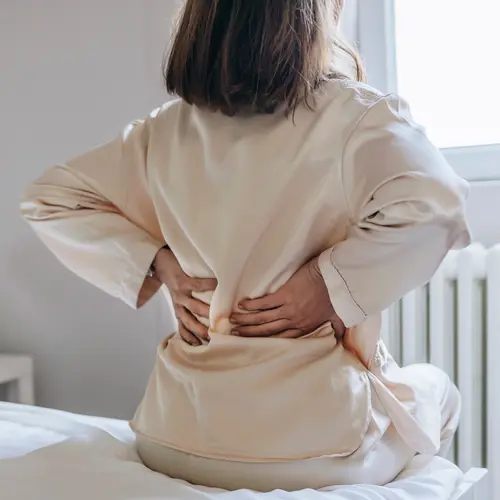Think you’re doing everything you can to protect your bones? Are you sure?
Here are 11 thieves that could be raiding your bones without you knowing it, and some expert tips to protect yourself.
Thief 1: Sunscreen. “People don’t realize how important vitamin D is to bones,” says integrative medicine physician Robin Miller, MD. “They think they’re getting it from sunlight, but they’re using sunscreen, and vitamin D doesn’t get through sunscreen.”
The Fix: Keep using sunscreen. You need it to protect your skin from sun damage and cancer. But get more vitamin D in your diet. It’s found in fish, eggs, and many fortified drinks. You can also consider vitamin D supplements. “You can safely take 1,000 IU a day,” says Miller, ‘”but I always recommend that people have their vitamin D levels checked to see how much they need.”
Thief 2: Your meds: “There are a lot of medications that can cause problems with bones,” says Miller, especially the seizure drug phenytoin (Dilantin). Other potentially bone-stealing medications include steroids, some cholesterol-lowering drugs, some weight loss drugs, and some blood thinners.
The Fix: Talk to your doctor about whether drugs you take may hurt your bones; can you take something else or offset the impact? It may be as simple as taking supplements with your meds.
Thief 3: Processed food and fast food. Can you say sodium? Fast and processed foods are packed with it. “When we take in too much sodium, it’s excreted through urine, but unfortunately, it brings calcium along for the ride,” says Frances Largeman-Roth, RD.
The Fix: Eat more fresh, whole foods, especially vegetables, and cut back on sodium.
Thief 4: Ditching your egg yolks. They’re a good source of vitamin D, says Largeman-Roth. Vitamin D and calcium are crucial for your bones.
The Fix: Switch to whole-egg omelets. Your bones will thank you.
Thief 5: Too many happy hours. Alcohol slows the formation of new bone tissue, says Largeman-Roth.
The Fix: Stick to no more than one drink a day for women and two drinks a day for men.
Thief 6: Caving to cola cravings. Drinking cola seems to decrease the density of bones, probably because of the phosphoric acid in cola (not the bubbles).
The Fix: Largeman-Roth suggests seltzer flavored with citrus juice or a couple of slices of fresh ginger. Or you could just have a glass of water.
Thief 7: Your chair. Sitting too much damages your bones.“In order to have healthy bones, you have to bash them,” says orthopedist Vonda Wright, MD. While that may sound harsh, what she means is you have to put weight on them.
The Fix: Find opportunities to get up and move. If your health permits, add weight-bearing exercise such as tennis, dancing, or jogging, and strength training to your weekly routine. Wright also recommends sitting on a large exercise ball instead of a chair three times a day for at least 30 minutes to increase the force on the bones.
Thief 8: Cigarettes. They’re bad for your whole body, and that includes your bones. Studies have shown a strong link between smoking and a decrease in bone density. And women who smoke make less estrogen, a hormone that's key to bone health.
The Fix: Ask your doctor for help quitting.
Thief 9: Sugar. “High levels of blood sugar are very bad for collagen formation,” says Wright. Bones are made of a type of collagen.
The Fix: Cut back on sweets, as well as refined carbohydrates like white rice and mashed potatoes.
Thief 10: Dieting. “People who are overweight rarely will have low bone density,” says Miller. Being too thin raises your chance of developing osteoporosis.
The Fix: No one is suggesting obesity is a safe or healthy way to stave off bone loss, but consider your bone health before starting a weight-loss program. Talk to your doctor about what's a healthy weight for you.
Thief 11: Stress. “Thin, worried white women” are the ones who get osteoporosis, according to the stereotype, and there’s some truth to it, says Miller. Blame the stress hormone cortisol. Over time, it can thin the bones.
The Fix: Practice whatever relaxation techniques work for you.

